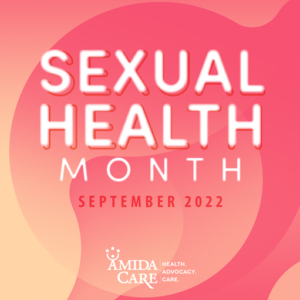Sexual Health Awareness Month: The Facts About Monkeypox and More

September is Sexual Health Awareness Month, a time to celebrate pleasure and intimacy, and affirm our right to quality, culturally-competent health care.
This year, there’s been an outbreak of monkeypox in New York City, with sexual contact being a prominent means of transmission, especially among MSM (men who have sex with men), but it’s important to note that monkeypox is not a sexually transmitted disease. Monkeypox is transmitted in various ways, including skin-to-skin contact through massage and high-contact sports. According to the World Health Organization, monkeypox is transmitted from one person to another by close contact with lesions, body fluids, respiratory droplets and contaminated materials such as bedding. Check out the NYC Department of Health for the latest information.
Fortunately, the rate of infection has declined over the past several weeks, thanks to vaccinations, the work of community-based organizations and providers, and heightened awareness about the virus. But monkeypox is still with us, as are the damaging effects of stigma for the LGBTQ+ populations most impacted by the outbreak. Anyone can get and spread monkeypox. It is important to challenge misinformation when we hear it and push back against stigma.
Sexual Health Awareness Month is also an important time to think about HIV prevention, specifically PrEP (pre-exposure prophylaxis) and PEP (post-exposure prophylaxis). Getting tested for HIV is essential for sexual health: If you test positive, anti-retroviral medication can keep your viral load undetectable and untransmittable (U=U); if you’re negative but placed at high risk, PrEP might be a good option to keep you negative. Click here for more information.
It’s also very helpful to have an open line of communication with a health care provider. Speak up about your sexual health questions and concerns to your regular provider or visit one of the city’s sexual health clinics.
Sexual health is a big part of overall health; make yours a priority!
